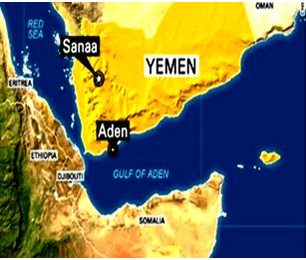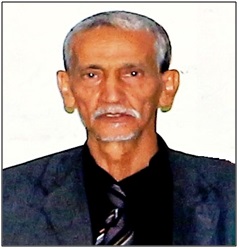EFFECT OF MOST COMMON ANTIBIOTICS AGAINST BACTERIA ISOLATED FROM SURGICAL WOUNDS IN ADEN GOVERNORATE HOSPITALS, YEMEN
Keywords:
Antibiotics, pathogenic bacteria, resistant, wounds infectionAbstract
Objective: The increased antibiotics resistance of pathogenic bacteria isolated from surgical wound is the major health threats challenge the patients especially in developing countries like Yemen. This work was aimed to determine and identify the bacteria associated with surgical wound infections and their resistance to commonly used antibiotics.
Methods: One hundred and twenty swabs were sampled from surgical wound patients at Aden City, Yemen. The pathogenic bacteria were isolated and identified according to standard microbiological methods. Also, antibiotic susceptibility tests were determining by using Kirby-Bauer disc diffusion technique.
Results: The results showed that out of 120 samples, 68 (56.67%) showed bacterial growth. It was found that the most isolated bacteria was Sylococcus aureus 27 (39.70%) followed by Escherichia coli 19(27.94%), Pseudomonas aeruginosa 13 (19.12%), and Proteus mirabilis 9 (13.24%). All isolated bacteria were recorded to be extremely resistant to the most tested antibiotics. S. aureus was reported to be susceptible to cefotaxime, vancomycin, and ciprofloxacin and highly resistant to ceftazidime, nalidixic acid, erythromycin, and tetracycline. The E. coli isolates showed resistance (100%) to vancomycin and tetracycline and moderately sensitive to ceftazidime and gentamycin. P. aeruginosa showed from high to moderate resistance to most tested antibiotics except gentamycin and cefotaxime. Most of P. mirabilis isolates were sensitive to ceftazidime, cefotaxime, ciprofloxacin, and gentamycin and highly resistant to amoxicillin, erythromycin, and vancomycin.
Conclusion: The current study findings that the reduced sensitivity of isolated bacteria to commonly used antibiotics is an alarming and threat upsurge of infections caused by antibiotic-resistant bacteria.

Peer Review History:
Received 6 December 2019; Revised 17 January 2020; Accepted 25 February; Available online 15 March 2020
Academic Editor: Dr. Amany Mohamed Alboghdadly , Princess Nourah bint abdulrahman university, Riyadh, amalbgadley@pnu.edu.sa
, Princess Nourah bint abdulrahman university, Riyadh, amalbgadley@pnu.edu.sa
Reviewer(s) detail:
Dr. Mujde Eryilmaz , Ankara University,Turkey, meryilmaz@ankara.edu.tr
, Ankara University,Turkey, meryilmaz@ankara.edu.tr
Dr. Rola Jadallah , Arab American University, Palestine, rola@aauj.edu
, Arab American University, Palestine, rola@aauj.edu
Downloads

Published
How to Cite
Issue
Section

This work is licensed under a Creative Commons Attribution-NonCommercial 4.0 International License.









 .
.